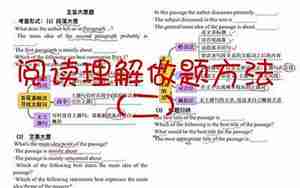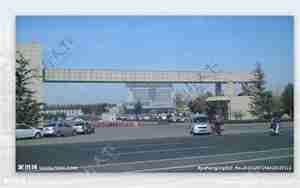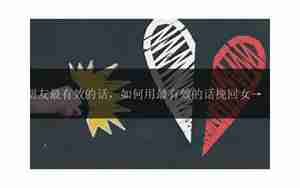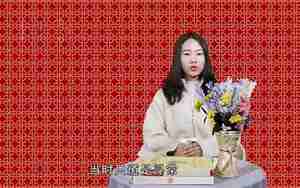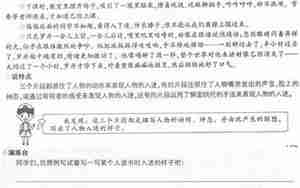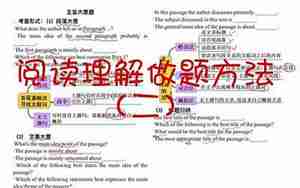
《英语中的转折艺术:理解与运用"But"引导的句子》
在英语世界中,"but"就像一把巧妙的调色板,它为句子增添了丰富的层次和转折,让语言表达更为生动。无论是在日常对话还是书面文中,适当运用"but"都能让你的英语更具说服力和表达力。让我们一起深入探索这一转折词的魅力,了解它的使用技巧和翻译策略。
让我们看一个典型的例子: "Despite her love for painting, she had to quit because of her busy work schedule."(尽管她热爱绘画,但由于繁重的工作日程,她不得不放弃。)"Despite"这个词在句中起了转折的作用,强调了尽管有热爱,却因外部因素而不得不做出改变。在翻译这样的句子时,我们需要清晰地表达出前后两个部分的对比,中文可以译为"尽管如此,由于工作繁忙,她还是不得不放弃了绘画。"
"but"并非总是表示明显的对比,它也可以用来加强前面的观点,形成递进关系。举个例子:"She is a talented musician, but her public performances often lack confidence."(她是个有才华的音乐家,但在公众演出时却缺乏自信。)这里的"but"展现了她技艺的同时,也揭示了她在舞台上的短板,翻译时要体现这种微妙的转折,如"虽然她技艺出众,但在公开表演时往往显得缺乏自信。"
在写作中,巧妙运用"but"可以避免句子显得过于单调。例如,"The weather was beautiful, but the unexpected rain ruined our picnic."(天气本应是晴朗的,但突如其来的大雨破坏了我们的野餐。)这种转折让读者对事件的发展有了期待,翻译时要保持语境的流畅性,如"尽管天气的美好,一场突如其来的雨却让我们的野餐泡汤了。"
"but"在英语中不仅起到连接句子的作用,更是表达语言逻辑和情感转折的关键。理解并熟练运用"but"可以让你的英语表达更加丰富和准确。记住,善于使用转折,就像在编织故事中加入转折点,让篇章更具吸引力。下次当你在写作或者与人交流时,记得给你的观点添加一些转折的调料,看看它们如何提升你的英语表达水平。
but相关短语和句型
"but"在英语中是一个重要的转折连词,它经常用于短语和句型中,帮助我们表达对比、转折或强调新的信息。以下是几个常见的"but"相关短语和句型:
1. Basic structure: "Despite [adjective]," "Although/Though [clause]," 或 "However," 这些结构用于引入转折,如 "Despite her intelligence, she struggled with basic math."
2. Contrasting ideas: "Not only...but also..." 这个短语强调两者的并存,如 "Not only did she win the race, but she also set a new record."
3. Addition followed by contrast: "While [positive aspect]," then "but [negative aspect]," 如 "While everyone enjoyed the food, but some had food allergies."
4. Indirect contrast: "The best part was...but" 后面接的是一个不那么愉快的转折,如 "The best part of the trip was the scenery, but the weather was unpredictable."
5. Unforeseen consequences: "They thought it would be easy, but [surprising outcome]," 描述之前预期与实际不符的情况。
6. Contrastive emphasis: "Everyone expected her to succeed, but she failed," 强调出乎意料的结果。
7. Conditional statements: "If [condition], but [contrary result]," 如 "If she studied hard, but she preferred playing games."
8. Emphatic statements: "But for [exception]," 强调如果没有某个因素,事情会有所不同,如 "But for his quick thinking, the accident could have been worse."
在写作或者口语中,掌握这些短语和句型可以帮助你更自然地表达出现实中的矛盾、转折或对比,使你的语言更具说服力。记住,"but"的使用关键在于准确把握句子间的逻辑关系,以便传达出你想表达的信息。
but在句子中的用法
"But"在英语句子中就像一个桥梁,连接前后两种相反或对比的观点。它有着多种用法,包括但不限于以下几种:
1. 转折用法: 最常见的用法是表示前后信息的对比或转折。例如:"She is very intelligent, but she struggles with public speaking." 这句话表明了她的智力很高,但她在公开演讲方面有困难。
2. 强调对比: "Not only does she work hard, but she also manages her time efficiently." 这里强调了她勤奋工作的同时,时间管理也很出色。
3. 添加额外信息: "The place was beautiful, but the noisy neighbors made it hard to relax." 这里通过but强调了环境的另一面,尽管美,但有噪音干扰。
4. 条件下的转折: "If he studied, he would pass the test, but he chose to procrastinate." 表明如果他采取行动,结果就会不同。
5. 在列举中突出例外: "She tries many activities, but jogging is the only one that she enjoys." 这里突出的是唯一一项她真正喜欢的活动。
6. 用在条件句中: "You would have won if you had practiced more, but you didn't." 描述了条件下的结果。
7. 形成对比主体: "The city is modern, but the countryside is peaceful." 这里将城市和农村的生活环境进行对比。
在使用"but"时,关键是要确保前后两个部分在意思上形成对比,或者表达一个完整的转折。记住,"but"使句子更具动态,有助于传达复杂的逻辑关系。通过恰当的运用,"but"可以使你的英语表达更加丰富和有力。
含有but的英文句子
含有"but"的英文句子示例:
1. : "She's very smart, but she has trouble with basic math problems." 这里强调了她的智力高,但她在数学基础方面却有困难。
2. : "Although he's a talented musician, he lacks stage presence." 虽然他有音乐天赋,但他在舞台上的表现却欠佳。
3. : "Everyone else thought the project was a success, but he saw it differently." 每个人都感觉项目成功,但他持不同看法。
4. : "If he had prepared, he could have won the game, but he didn't show up." 如果他事先做准备,他本可能胜利。
5. : "She tried many sports, but swimming was the only one that brought her joy." 尽管尝试了多种运动,唯有游泳让她感到快乐。
6. nested but: "The house looked beautiful on the outside, but there were problems with the plumbing." 这房子从外面看很美,但内部的水管系统有问题。
7. Introducing a problem: "The food was delicious, but the long wait at the restaurant was disappointing." 虽然食物美味,但餐厅的长时间等待令人扫兴。
这些句子中,"but"的作用在于强调转折,对比,或是突出某个例外情况。通过恰当的使用,"but"能够增强语言的动态性和表达力。
关于but的用法
"But"的用法在英语表达中非常重要,它常用来表示转折、对比或突出重要信息。以下是一些关于"But"的主要用法:
1. 转折(Contrast): "But"用于表示前后两个相反或不同的观点。例如:"She is talented, but her performance was disappointing." 这里对比了她的才能和实际表现。
2. 强化对比(Emphasis): "Not only...but also..." 结构强调两个方面的并存,如 "Not only does she speak French, but she also speaks Spanish fluently." 说明她的语言能力不止一种。
3. 条件下的转折(Conditional contrast): "If...but..." 表示假设条件下的不同结果。如:"If she had studied, she would have passed the exam, but she didn't revise."
4. 例外情况(Exception): "She enjoyed many activities, but she loved gardening the most." 在众多活动中,园艺是她最喜欢的一项。
5. 列举及强调(Non-sequential contrast): "The weather was perfect, but the unexpected thunderstorm ruined the picnic." 指出天气的两面性,尽管起初看起来很好,但后来出乎意料出了问题。
6. 强调主题(Emphasizing contrast): "The company has a great reputation, but its customer service is consistently criticized." 这里强调了公司声誉和客户服务之间的反转。
7. 在复合句内部(Nested contrasts): "She came early, but she left before the event started." 说明她到达得早,但离开得也早。
使用"But"时,要确保前后两个部分逻辑清晰,以避免句子变得模糊。记住,"But"的使用不仅可以增强表达的清晰度,还能为你的语言增添动态,使你的观点更为鲜明。
有关buy的句型
"Buy"是一个非常常见的动词,常用于描述购买行为。以下是一些关于"buy"的常见句型:
1. 基本句型:
I'm going to buy a new phone. (我打算买一部新手机。)
Can you buy me a birthday gift? (你能帮我买个生日礼物吗?)
He always buys organic produce at the farmer's market. (他总是在农贸市场买有机农产品。)
2. 询问价格或同意购买:
How much does this jacket cost? I'll buy it if it's within my budget. (这件夹克多少钱?如果在我预算内,我就买。)
Are these books still available? I'd like to buy them if they are. (这些书还有卖吗?如果有我就买。)
3. 交易或交换:
She'll buy him a beer in exchange for fixing her computer. (她会买他一杯啤酒,作为他修电脑的报酬。)
They're buying a house together as a joint investment. (他们将合买房子作为一项共同的投资。)
4. 虚拟语气:
If I had enough money, I would buy that car. (如果我有足够的钱,我就买那辆车了。)
5. 表达购买意愿:
I wish I could buy every book on this shelf. (我真希望能买下书架上的所有书。)
You should buy a ticket to the concert, I'm sure you'll love it. (你应该买张音乐会的票,我相信你会喜欢的。)
6. 购买行为完成后的描述:
I've just bought a new laptop, and I'm excited to try it out. (我刚买了一台新电脑,我迫不及待想试一试。)
这些句型展示了"buy"的各种用法,从简单的购买请求到复杂的交易或愿望。在实际交流中,根据语境的不同,可以添加更多的细节和修饰来表达丰富的购物行为。









